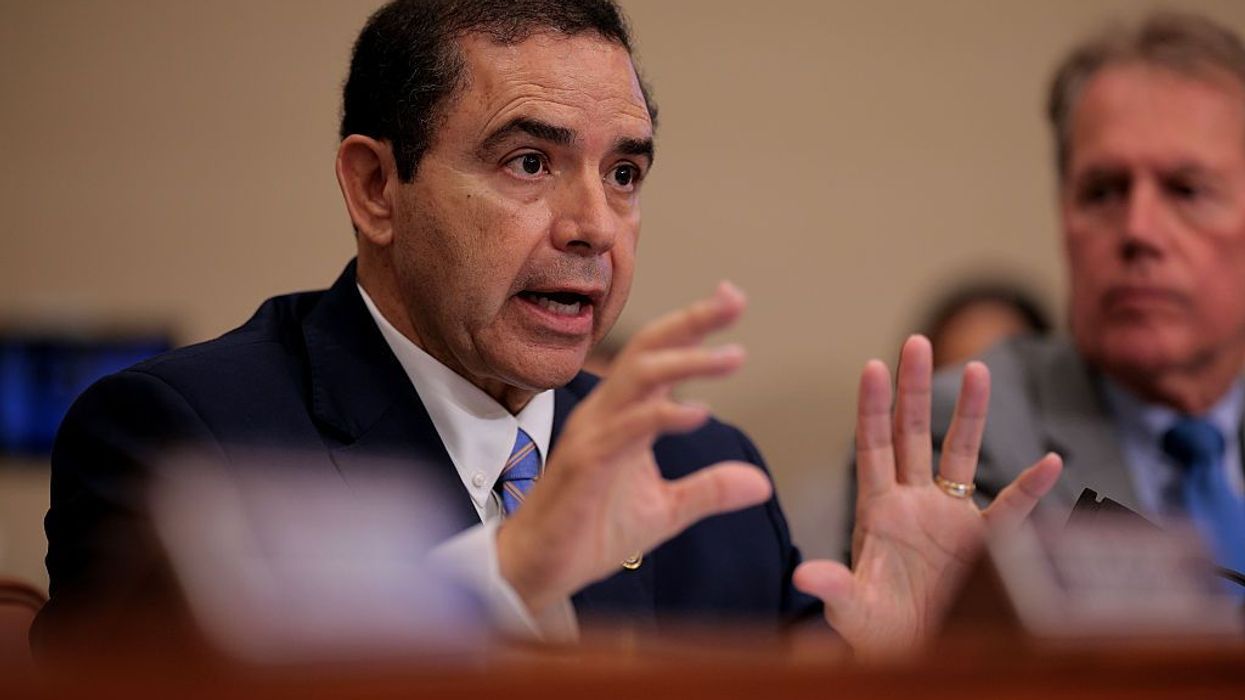“Columbia’s original collaboration with ICE and the Trump administration set the stage for the ICE raids and extrajudicial murders that are now terrorizing communities nationwide,” Sunrise Columbia said in a statement following the protest.
A smaller group of protesters blocked the intersection of Broadway and 116th Street, site of the main entrance to the Columbia campus in Morningside Heights, at around 3:00 pm Thursday, according to the Columbia Spectator. Activists sat in a crosswalk wearing matching shirts reading "Sanctuary Campus Now" as chants of "No ICE, no KKK, no fascist USA!" and "When immigrants are under attack, what do we do? Stand up, fight back!" echoed through the air.
“It’s very meaningful for faculty and students to take action alongside each other and even get arrested alongside each other,” Columbia student Adeline Sauberli told the Spectator. “I think it’s a message of hope, almost, that you know the core of the Columbia community, the students and faculty who are in classrooms together and talking about ways that the world can be better are also willing to take to the streets and say that we shouldn’t have ICE here.”
Columbia Teachers College adjunct professor E.Y. Zipris told the Spectator that “if I was to really continue to respect the university, then I have to join in with those who are fighting to remind Columbia of how it’s supposed to be."
“For faculty to put themselves in this position where they will be handcuffed and led into an awaiting van and then driven downtown is a tremendous statement of calling out the institution, the board of trustees, and everybody involved, saying, ‘Our students are more important to us than caring for, in this moment, our own actual well being,’" Zipris added.
New York Police Department (NYPD) officers began arresting the protesters blocking the intersection after issuing warnings to disperse. The New York Times reported that the arrests were "calm and deliberate," a "marked contrast from the overwhelming show of force and rows of riot police that often met protesters outside Columbia during the past two years" of protests against the US-backed Israeli genocide in Gaza and Columbia's complicity in the slaughter.
Organizers of Thursday's action accused Columbia's board of trustees of complicity with the Trump administration's deadly immigration crackdown, pointing to ICE's arrest of former Columbia graduate student and Gaza protest organizer Mahmoud Khalil, a legal permanent US resident who was abducted last March by ICE agents in front of his pregnant wife and jailed without charge or trial in Louisiana before being released in late June.
Other Columbia students who took part in Gaza protests, including green-card holders Mohsen Mahdawi and Yunseo Chung and Palestinian Leqaa Kordia, were also arrested last year.
According to the Spectator:
Protesters called on the university to stop sharing student, faculty, and staff information with the Department of Homeland Security and other law enforcement agencies; remove members of the board of trustees who have “enabled the Trump administration’s repression of noncitizens"; end the surveillance and discipline of students for political activity; and clarify how the university has implemented its $221 million agreement with the Trump administration.
“Over the past two years, we’ve seen Columbia violently suppress student speech exposing Columbia’s complicity in ongoing genocide in Palestine,” student organizer Cameron Jones told the New York Daily News. “By suspending, brutalizing, and facilitating the kidnapping of their students, the university has made clear that there is no line it will not cross in service of genocidal regimes.”
Columbia University denies that it worked with ICE to arrest students, saying in a statement that it "supports the right of individuals to peacefully protest. However, claims made against the university during today’s protest activity, which took place outside of our gates, are factually incorrect."
Arrestee Jennifer Hirsch, a professor at Columbia's Mailman School of Public Health, told the New York Times that “Columbia was the test case for this government strategy of kidnapping people first and then asking questions later."
In a separate interview with the Spectator, Hirsch said that “it says in the Torah, be kind to the stranger for you are a stranger in a strange land and that was actually in my bat mitzvah Torah portion, and so I’m just responding to what to this moment asks of all of us."
“I think history will judge us for what we do at this moment,” Hirsch said. “It’s scary and dangerous but it’s more scary and dangerous to have masked agents come to your door, break down your door, and kidnap you.”




